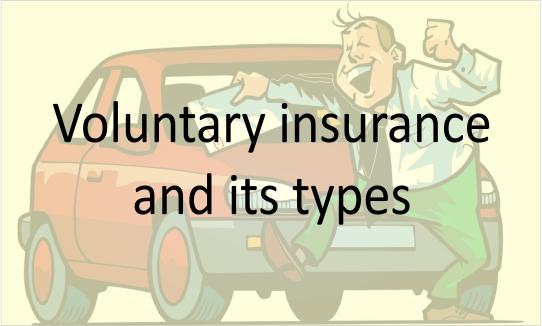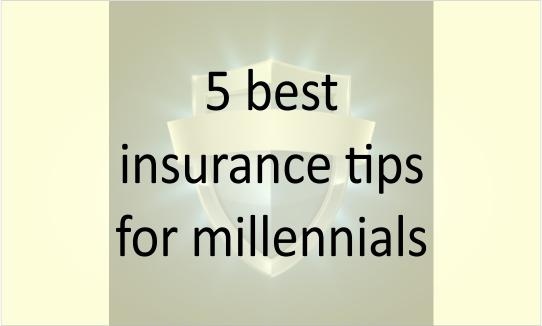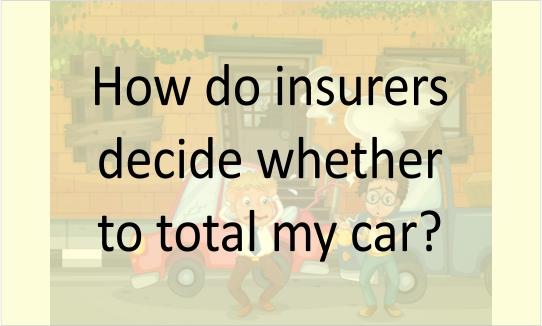Voluntary insurance and its types

Voluntary insurance is insurance that is carried out on the basis of a contract between the insured and the insurer. The general conditions and procedure for voluntary insurance are determined by the insurance rules established by the insurer independently in accordance with the requirements of the Law of Ukraine "On Insurance". Specific conditions of insurance are determined when concluding an insurance contract in accordance with the law.
Voluntary insurance with a particular insurer may not be a prerequisite for the implementation of other legal relationships.
The types of voluntary insurance for which a license is issued are determined in accordance with the insurance rules (conditions) adopted by the insurer, registered by the national commission for state regulation in the field of financial services markets.
Types of voluntary insurance can be:
- life insurance;
- accident insurance;
- health insurance (continuous health insurance);
- health insurance in case of illness;
- insurance of railway transport;
- land transport insurance (except railway);
- air transport insurance;
- insurance of water transport (maritime inland and other types of water transport);
- cargo and luggage insurance (cargo luggage);
- insurance against fire risks and risks of natural phenomena;
- property insurance (other than provided for in paragraphs 5-9);
- civil liability insurance of land transport owners (including carrier's liability);
- liability insurance of air transport owners (including carrier's liability);
- liability insurance of water transport owners (including carrier's liability);
- third party liability insurance (other than provided for in paragraphs 12-14);
- credit insurance (including the borrower's liability for non-repayment of the loan);
- investment insurance;
- insurance of financial risks;
- insurance of court costs;
- insurance of issued guarantees (sureties) and accepted guarantees;
- medical expenses insurance;
- insurance of civil liability of the arbitral trustee (manager of property, reorganization manager, liquidator) for damage that may be caused in connection with the performance of his duties
- life and health insurance of volunteers for the period of their volunteer assistance;
- insurance of agricultural products;
- other types of voluntary insurance.

Characteristics and classification features of types of voluntary insurance are determined by the national commission for state regulation in the field of financial services markets.
Life insurance is a type of personal insurance, which provides for the insurer's obligation to make an insurance payment under the insurance contract in case of death of the insured person, as well as, if provided by the insurance contract, in case of life of the insured person before the expiration of the insurance contract and (or ) reaching the age specified by the contract by the insured person. The terms of the life insurance contract may also provide for the insurer's obligation to make an insurance payment in the event of an accident that occurred to the insured person and (or) the insured person's illness. If the occurrence of the insured event provides for regular consecutive life insurance payments (life pension insurance), it is mandatory to provide in the insurance contract for the risk of death of the insured person during the period between the insurance contract and the first life insurance payment. In other cases, anticipation of the risk of death of the insured person is mandatory throughout the term of the life insurance contract.
Insurers have the right to engage only in those types of voluntary insurance that are defined in the license.
5 best insurance tips for millennials
Adulting (verb) - acting like an adult or engaging in activities usually associated with adulthood, often responsible or boring tasks. If you’re a millennial, you know this definition all too well. You’ve reached the age where you may be taking out student loans, buying or renting a place to live, having kids and, ultimately, purchasing insurance. These major life events for millennials make it extremely important to have a financial security net. And that’s exactly what insurance is: a financial security net. So it’s troubling that a survey from Princeton Survey Research Associates International named millennials the most underinsured generation. There are many reasons why people of all generations avoid purchasing insurance. It‘s often seen as a big investment, but that doesn’t necessarily mean that it’s an expensive one. In fact, insurance probably costs less than you think. For instance, according to the National Association of Insurance…
Travel insurance can minimize the considerable financial risks of traveling: accidents, illness, missed flights, canceled tours, lost baggage, theft, terrorism, travel-company bankruptcies, emergency evacuation, and getting your body home if you die. Each traveler’s potential loss varies, depending on how much of your trip is prepaid, the refund ability of the air ticket you purchased, your state of health, the value of your luggage, where you’re traveling, the financial health of your tour company and airline, and what coverage you already have (through your medical insurance, homeowners or renters insurance, and/or credit card). Do I Need Travel Insurance? When considering an insurance plan, it’s good to know what it does and doesn’t cover. For some travelers, insurance is a good deal; for others, it’s not. What are…
How do insurers decide whether to total my car?
A car insurance company's decision to total a car depends on the extent of the damage following an accident. Car insurance companies take into account several factors when deciding whether to total your car, including: Repair estimates List value Salvage value State laws, if applicable While each car insurance company approaches the decision differently, many insurers declare the vehicle a total loss if the estimated cost of repairs plus the salvage value equals or exceeds the car's actual cash value. The actual cash value is a car's fair market value – or, replacement cost…


